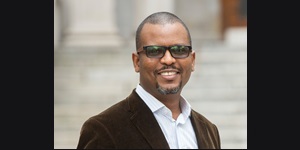Historical
Historical
1. Context
The fall of the Berlin Wall in November 1989 and the end of the Cold War enabled the new Director-General of UNESCO, Federico Mayor, to convince the Organization’s Member States to adopt a New Communication Strategy, promoting a free and pluralist press, with a view to shelving the highly controversial concept of the New World Information and Communication Order (NWICO) perceived by the major international media professional organizations as a tool in the hands of the states to control the press.
During the1970s and 1980s, the NWICO had been at UNESCO the battle horse of the non-aligned countries supported politically by the Soviet Bloc. With the New Communication Strategy, UNESCO decided to give priority to collaboration with the UNESCO Chairs in communication, whose network was growing rapidly primarily in developing countries.
In this context, and with the support of African countries and numerous journalists of the continent, it became possible to organise in 1991, under the auspices of UNESCO, a major seminar in Windhoek, Namibia, on the freedom of expression and the free and independent press. This seminar was made possible thanks to the dynamic direction of Alain Modoux who was, at the time, Director of Information and of Freedom of Expression at the UNESCO headquarters in Paris, and of Thérèse Paquet-Sévigny, who was then Deputy Secretary-General (Information) of the United Nations in New York. She actively contributed to the organisation of this encounter and to the set up of a fundraising campaign for the occasion, in addition to securing the endorsement of the UN Secretary-General.
2. Founders and first supporters
In the spring of 1993, Alain Modoux met with Thérèse Paquet-Sévigny, then professor at the Department of Communication at the University of Quebec in Montreal (UQAM), to create a UNESCO Chair in Montreal.
Mrs Paquet-Sévigny suggested that not only a Chair would be welcome, but the building of an international network of UNESCO Chairs in communication, with a Secretariat in Montreal, Canada, might be of a greater interest to all potential partners.
Alain Modoux and Thérèse Paquet-Sévigny worked together to create the international network, ORBICOM, officially inaugurated in May 1994.
Bringing together all the holders of UNESCO Chairs in communication (active members) and several dozen associate members from the academic world, industry and commerce, as well as public administrations, and benefiting from the generous and constant support of UQAM, ORBICOM has grown rapidly to become the most active network of the UNITWIN programme, “The Network of Networks” created in 1992 and bringing together all UNESCO Chairs, all disciplines taken together.
In June 1994, Federico Mayor and rector of UQAM, Claude Corbo, signed a protocol founding the Orbicom Network, with the full support of Henrikas Yushkiavitshus, then Assistant Director-General for Communication, Information and Informatics, at UNESCO.
At the same time, a UNESCO-Bell Chair in Communications was inaugurated with the support of Monic Houde, then Vice-President of Communications, Bell Canada. For both instalments, the Network and the Canadian chair, Ms Céline St-Pierre, then vice-rector for research and academic affairs at UQAM, had been fully involved and supportive.
Later in 1994, nine UNESCO chair holders in Communications from Uruguay, Russia, Lithuania, Bulgaria, Hungary, Spain (2), Columbia and Canada, met in Montreal to proceed with the writing of specific mandates, development objectives and a plan of action for ORBICOM. Gilbert Dionne, then Vice-Rector for Information and Technologies at UQAM, was responsible for the establishment of a virtual platform linking existing and future chairs and for the usage of General Assemblies, newsletters, reports and articles as well as bilateral and multilateral exchanges.
The strong support of Sylvie Coudray in charge of Programs at UNESCO (Paris) has been constant and essential to the maturing of the ORBICOM Network. And, two Montreal firms, Raymonde Lavoie & Associates and Michel Dumas & Associates, respectively developed the name and the logo of the Network.
In 1999, after playing multiple roles aside Therese Paquet-Sevigny, for more than three years, Professor Claude-Yves Charron from UQAM was appointed Secretary General of ORBICOM, and Professor Jean-Paul Lafrance also from UQAM became the chair holder of the UNESCO-Bell Chair in Communications. In 2006, Professor Madga Fusaro (UQAM) became the new chair holder.
Therese Paquet-Sévigny was retiring from UQAM University after holding the two functions for the ORBICOM network and the Canadian Chair. In 2011, Professor Yves Théorêt also from UQAM was appointed Secretary General of the Orbicom Network.
3. The mandate
- Promoting the exchange of knowledge and expertise in communications through education, research and concrete action.
- Linking experts from every continent in multicultural, multidisciplinary approach.
- Setting up training and internship programs.
- Establishing international exchange programs for communication professionals and managers.
- Developing research, publishing and lecturing programs.
- Providing expertise and consulting services on demand to international organizations.
4. The specific areas of expertise
- Communications and international development.
- National information policies and communication laws.
- Access to, transfer and use of new technologies (NICT).
- Media development and management.
- Public relations, public affairs, and advertising.
- Professional training and ethics.
PDF Text.
Fellows*
*Ce titre honorifique est attribué exclusivement aux fondateurs, aux présidents du CA et aux secrétaires généraux.
Founders
Presidents of the Governing Body
General Secretaries

Thérèse Paquet-Sévigny
GENERAL SECRETARY 1994-1998
International Network of UNESCO chairs in communication

Claude-Yves Charron
GENERAL SECRETARY 1998-2011
International Network of UNESCO chairs in communication
Achievements Report of Thérèse Paquet-Sévigny
UNESCO-UQAM Convention : International network of UNESCO chairs in communication (ORBICOM)
Convention UNESCO-UQAM-ORBICOM : 1994
Agreement UNESCO-UQAM-ORBICOM : 1994
Title
Convention UNESCO-UQAM-Chaire UNESCO en communication (UQAM) : 1994
Lettre des Nations Unies
Lettre des Nations Unies, Novembre 2000
Lettre officielle d'accréditation
Lettre officielle d’accréditation ONU_Août 1997
Lettres patentes
Communiqué de presse_Reconnaissance d’ORBICOM comme organisme international du gouvernement du Québec
Demande d’obtention du Statut consultatif auprès du Conseil Économique et Social (ECOSOC) de l’Organisation des nations Unies (ONU)
Notification d’enregistrement d’ORBICOM : 1996
Demande d’Accréditation d’ORBICOM à titre d’ONG : 1996
Demande d’accréditation_ORBICOM
Demande de reconnaissance à titre d’organisme non lucratif d’ORBICOM






